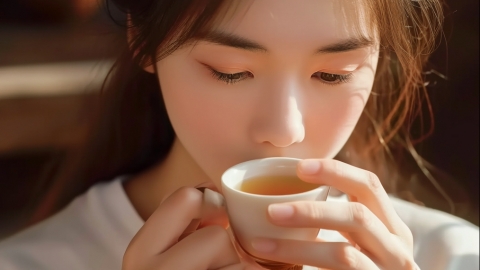What Are the Three Types of Tea That Should Not Be Consumed with Blood Heat?
Generally speaking, there is no specific claim that people with blood heat should not drink three certain types of tea. However, it is usually not advisable for individuals with blood heat to consume teas such as cinnamon tea, ginger tea, longan tea, red date tea, or brown sugar ginger tea. Detailed explanations are as follows:

1. Cinnamon Tea: Cinnamon has a warm and hot nature. Consumption by individuals with blood heat may intensify internal heat and dryness, worsening symptoms of blood heat such as dry mouth and throat, and irritability. Therefore, it is not recommended.
2. Ginger Tea: Ginger has a pungent and warm nature and functions to dispel cold and relieve fever. For individuals with blood heat, drinking ginger tea may cause accumulation of internal heat, exacerbating discomfort caused by blood heat. Thus, it is unsuitable.
3. Longan Tea: Longan is a warming ingredient that benefits the heart and spleen. However, consumption by individuals with blood heat may intensify internal heat symptoms, potentially triggering or worsening symptoms such as bleeding and irritability. It is therefore not recommended.
4. Red Date Tea: Red dates have a warm nature and although they can nourish qi and blood, excessive consumption by individuals with blood heat may increase internal heat, which is not conducive to alleviating symptoms of blood heat. Drinking large amounts should be avoided.
5. Brown Sugar Ginger Tea: Both brown sugar and ginger have a warm nature, and the tea made from their combination has a strong warming effect. Consumption by individuals with blood heat can intensify internal heat and worsen symptoms associated with blood heat. Therefore, it is not recommended.
When choosing teas, individuals with blood heat are advised to opt for cooling varieties such as chrysanthemum tea or honeysuckle tea. If discomfort occurs after drinking a certain tea, consumption should be stopped immediately. If symptoms of blood heat are significant, it is recommended to consult a healthcare professional for appropriate regulation and treatment.






